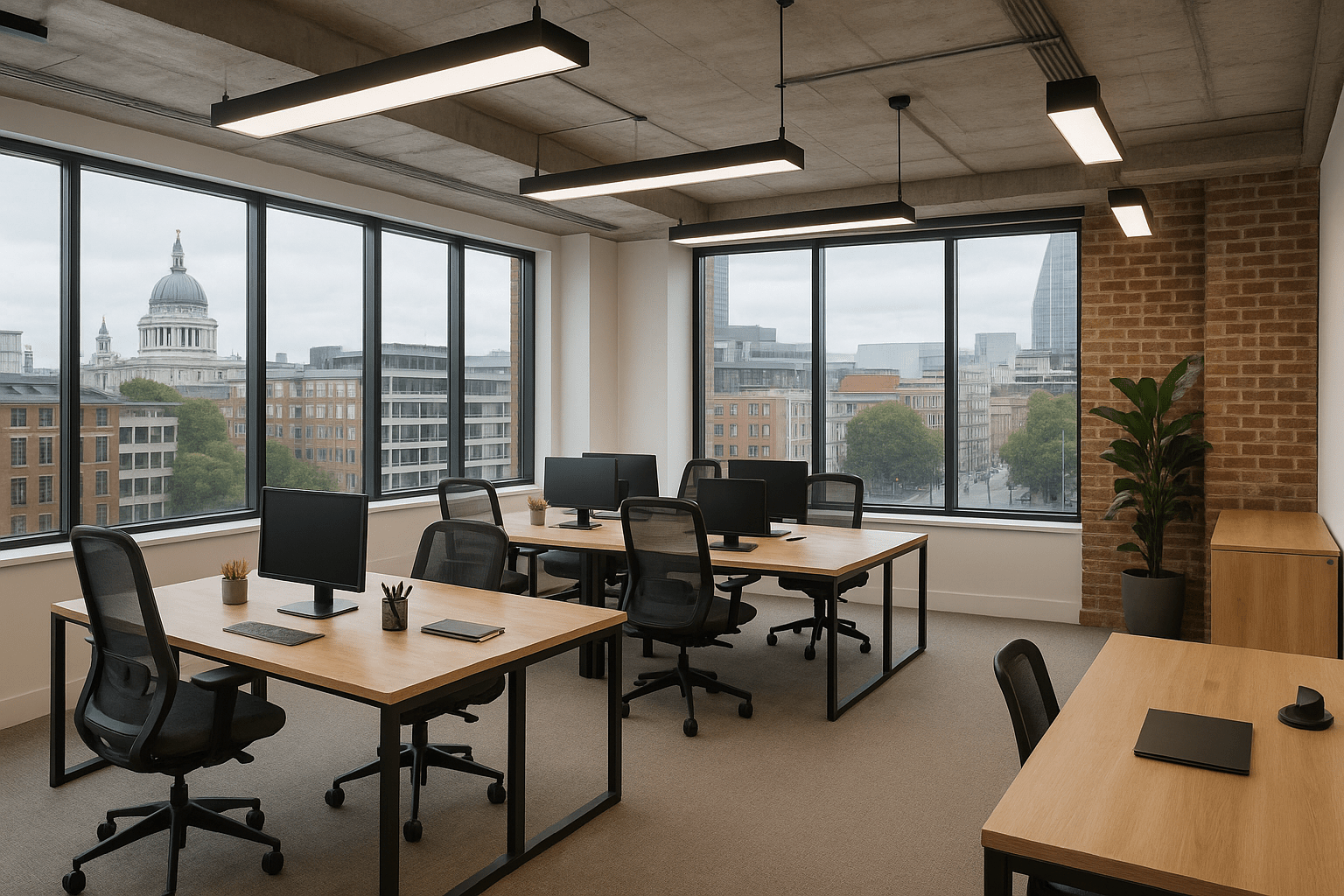Not long ago, walking into an office in London meant entering a world of grey. Cubicles, stiff chairs, standard-issue desks lined in quiet rows. The ritual was the same from Paddington to Canary Wharf: swipe in, settle down, work until the clock gave permission to leave. But that London? It’s slowly disappearing. The idea of office space London once represented is now being redefined entirely.
Today’s office isn’t a place you endure. It’s a place that, at its best, gives back. That knows people bring more than job titles—they bring energy, creativity, moods, and lives that don’t pause at the door. From co-working cafes near King’s Cross to entire buildings in Shoreditch designed like living rooms, office space in London has become a landscape of options, each one telling a story about the future of work—and the humans shaping it.
The Shift from Function to Feeling
There’s a certain kind of quiet that lives in traditional offices. It hums like white noise—predictable, safe, and often uninspiring. But London has always had a knack for rebellion, and that spirit is pouring into the way spaces are designed today. Walk into a newly opened office space London developers are excited about, and you’ll feel it before you even find the front desk.
There are nooks for introverts and lounges for collaboration. Soft lighting replaces fluorescent glare. Plants aren’t decorative—they’re part of the building’s respiratory system. A meeting room might have velvet armchairs instead of boardroom tables. And the coffee? It’s no longer an afterthought—it’s part of the culture.
This new wave of office design isn’t just about aesthetics. It’s psychological. It whispers to employees, “You matter here.” That your time and focus are precious, that the room should rise to meet your ambition. London isn’t just building spaces anymore—it’s crafting experiences.
The Geography of Innovation
One of the remarkable things about office space London offers is the sheer diversity of where and how it exists. Central London still holds its reputation for power and polish. Think towering views from The Shard or classic sophistication in Mayfair. But increasingly, the heart of London’s work culture is beating in its outer boroughs too.
Hackney is now home to tech incubators and design collectives. Brixton has seen old post offices turned into buzzing work hubs. Even places like Hammersmith and Peckham—once passed over—are gaining attention for their unique blend of local culture and professional readiness.
Every borough tells a different story. Choosing an office space in Holborn might signal structure and strategy. Picking a converted railway arch in Camden says you value edge and innovation. These decisions matter. In London, space is never neutral—it speaks.
Flexibility: The New Luxury
What Londoners have learned—especially in the wake of remote work—is that permanence isn’t always strength. More often, it’s drag. And so, office space London provides today isn’t just about square footage. It’s about freedom. The freedom to scale up without signing a 10-year lease. The freedom to choose a two-desk pod this week and a team suite next month.
Flexible office providers understand this shift. Names like WeWork, The Office Group, Huckletree, and Second Home have exploded not just because of design—but because of mindset. They offer rolling contracts, daily passes, breakout zones, and the kind of infrastructure that allows people to move with purpose rather than pressure.
It’s not just startups either. Larger companies are now weaving flexible offices into their real estate portfolios. A fintech firm might keep a headquarters in the City but set up satellite bases in East London for experimental teams. The point is not to contain work—but to let it unfold where it thrives.
Essentials to Look for in Office Space London
- Natural Light: Beyond the aesthetic, daylight boosts productivity and mental clarity.
- Transport Links: Whether it’s near a tube station or bike-friendly, ease of access is crucial.
- Scalable Layouts: Can the space adapt as your team changes? Look for modularity.
- Community Atmosphere: The best offices are more than rooms—they’re networks.
- Tech Readiness: From bandwidth to booking systems, make sure tech isn’t an afterthought.
Legacy Buildings with New Identities
London’s story is written in its architecture. And nowhere is that clearer than in its office spaces. In Fitzrovia, an old publishing house now holds a modern marketing agency. In Clerkenwell, Victorian warehouses buzz with startups and film editors. These aren’t just gimmicks—they’re respectful nods to the past, creatively reimagined for today.
The irony? Some of the most forward-thinking businesses are choosing the oldest buildings. Why? Because character matters. You can feel it in the creak of a floorboard, or the echo of a stairwell that’s seen centuries. It’s a reminder that innovation doesn’t mean forgetting where we’ve been—it means carrying it forward, differently.
Even the sustainability angle has evolved. Adaptive reuse—preserving and modernizing old buildings—offers environmental benefits and storytelling power. It says something when a company chooses to work out of a restored fire station or a decommissioned bank: they see value in history and believe in transformation.
Community Over Corporate
For a long time, the term “office culture” brought up images of forced icebreakers and flat birthday cakes. But now, office space London companies gravitate toward are less about obligation and more about belonging. It’s no longer about being in the same building—it’s about being part of the same ecosystem.
You’ll find spaces with yoga mornings, food truck Fridays, internal message boards where copywriters trade playlists with designers. Some even open their doors to locals, hosting talks, screenings, or workshops. It’s a quiet revolution—work blending into life, not standing apart from it.
Because the best office spaces don’t just serve businesses—they anchor communities. They recognize that people bring their full selves to work. And if the space allows for connection—genuine, spontaneous connection—then innovation often follows.
A Final Word: The Future Is Personal
There’s no singular formula for the perfect office space London has to offer, and maybe that’s the point. Because work, at its best, is deeply personal. Some need silence; others crave buzz. Some need structure, others flow. What matters most is choice.
London, with its mosaic of cultures, buildings, industries, and energies, understands this intuitively. Its office spaces reflect a city unafraid of change. One that honors tradition without being bound by it. One that opens its doors not just to companies, but to the individuals who fill them—with ambition, complexity, and dreams that deserve good lighting and strong coffee.
So, whether it’s a glassy high-rise or a leafy garden studio, office space in London isn’t about fitting in anymore. It’s about finding a place that fits you.




